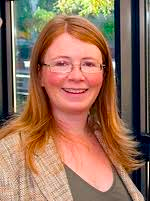Mags Liddy
We have many postgraduate and early stage DSAI members who are helping to advance development research from various disciplinary angles. To showcase the innovative and exciting research being undertaken by these DSAI members, we will be introducing a postgraduate or early stage researcher each month by asking them five questions that give an insight into their research experiences. This month, we asked Mags Liddy about her research. Mags is a PhD Candidate in the Department of Education and Professional Studies at the University of Limerick.
How did you get into development research?
I was always interested in development issues both global and national level, however my initial research interests lay in social movements and activism for political and social transformation. My undergraduate thesis was on feminism and gender-based movement's participation in the Velvet Revolution in Czech Republic and the transition to democracy and market economies across Eastern Europe. Later I completed my Master's thesis on the anti-capitalist movement examining the commonalities of political and economic critique across the movement.
My specific route to development research came through development education. For four years I worked for the Ubuntu Network which aims to embed a global perspective into post-primary teacher education in Ireland in recognition of the need to engage young people in critical analysis of global issues. I became more cognisant of education's enormous potential to support and foster social transformation by engaging in learning about political topics both local and global level, and to develop the potential for aware and active young people. This has brought me to examining how people engage with development issues.
What are you working on at the moment?
Presently I am writing some journal articles arising from my PhD thesis, which is a case study of short-term volunteering examining how volunteers translate their learning from this experience into their professional lives and understanding of our globalised world.
Participants' learning, insights and appreciation of their professional world is clear and articulated by returned volunteers. However I also address what the Irish volunteers learn about global development and does this learning enable teaching of global issues on return to Ireland. Findings herehighlight the ambiguous nature of participants learning on global development, as learning can be hindered by features of their habitus.
Which book or writer has most influenced your career?
This was a difficult question to answer as many authors and theorists have influenced my thinking and understanding of the world. However as an undergraduate I remember reading Stephen Lukes, Power: A Radical View (1974). His theory of the third face of power was highly influential and opened my eyes to how the world works.
Since his work the study of power has taken many directions; however John Gaventa's Phd and work with the IDS on power, participation, and governance including the Power Cube project bring Lukes' abstract ideas into reality.
What one recommendation would you have for anyone interested in postgraduate study and a research career in development studies?
Much theory can be intellectually exciting; however development centres on people, their lives and communities. Try to find some balance between studies and abstract thought with the practical side of development and working overseas.
